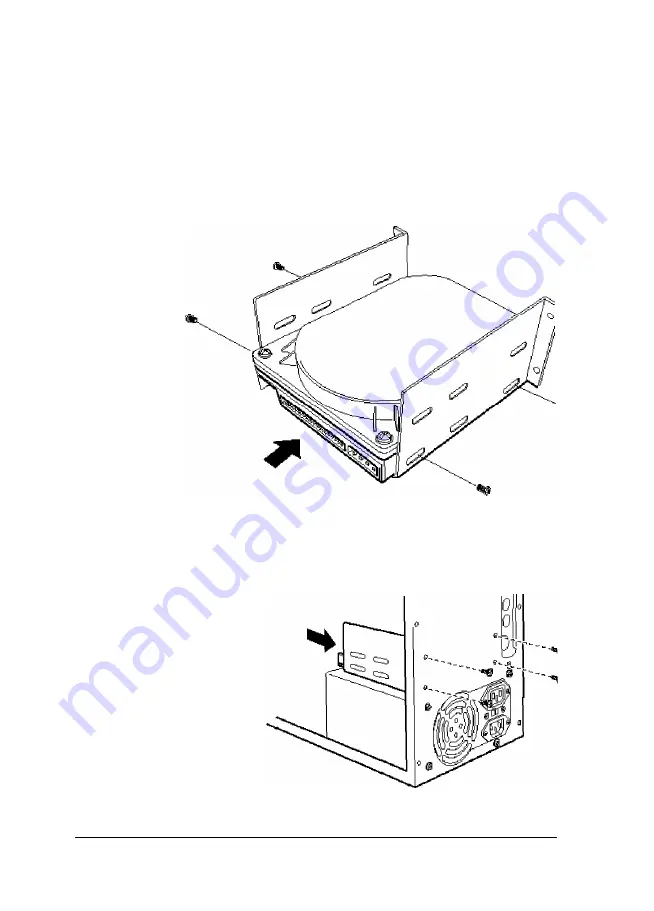
3.
Place the rear internal drive bracket on your work surface as
shown in the illustration below.
4.
Position the drive so that its drive and power connectors
face the end of the bracket shown below. Then slide the
drive into the appropriate bay in the bracket and secure it
with the four screws that came with the drive.
5.
Place the bracket as shown below and secure it to the back
panel with the four screws you removed earlier.
6-18
Installing and Removing Tower Drives
Summary of Contents for Endeavor 486I
Page 1: ...EPSON User s Guide ...
Page 5: ......
Page 70: ...Installing and Removing Options 4 7 ...
Page 78: ...SIMM configurations continued Installing and Removing Options 4 15 ...
Page 173: ...IDE hard disk drive jumper settings DMA Assignments Specifications A 11 ...
Page 174: ...Hardware Interrupts System Memory Map A 12 Specifications ...






























